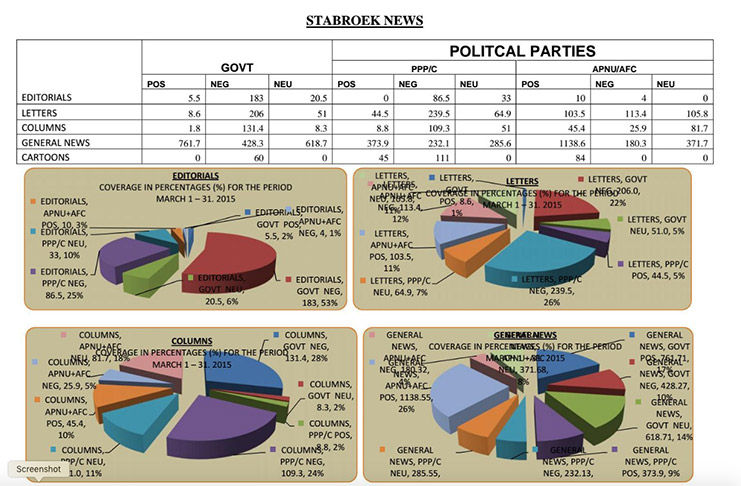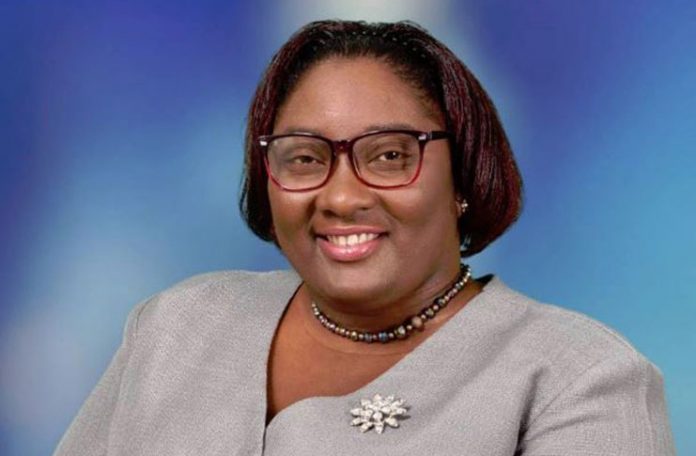MMU to target Online news sites
…as GECOM gears up to monitor media content ahead of 2020 polls
THE Guyana Elections Commission (GECOM) Media Monitoring Unit (MMU), when operationalized ahead of the March 2020 General and Regional Elections, will be increasing its scrutiny of social media news platforms.
Over the years, while the Commission’s MMU has observed and reported on coverage of the media during the elections season and their breaches of the 2006 Media Code of Conduct (MCC), this scrutiny had only come to the traditional media of radio, print and television.
“Social media is trumping all other media. The new convergence of this new media technology is really trumping the traditional media so it means therefore that we cannot say that we’re just going to monitor the traditional media platforms and leave social media out. Social media will be one of our top priorities if and when we have that unit established,” GECOM’s Public Relations Officer (PRO) Yolanda Ward told the newspaper on Monday.
The media can significantly influence information and the atmosphere of the coming elections and therefore an MCC was established in 2001— and recently revised in 2015 — as the standard of media performance expected especially during the period.
The Unit prepares and disseminates periodic reports of its findings on the local media’s performance and submits these to interested stakeholders such as GECOM and the United Nations Development Programme (UNDP).
According to reports, the MMU in 2008 monitored seven television stations, one radio station and four local newspapers; in 2015 it monitored nine television stations, four radio stations and the four local newspapers.
While 2015’s efforts saw the monitoring of online content, its reach was limited due to inadequate resources.
The MMU only monitored online content originating from print media; the former Government Information Agency (GINA) and online news websites whose principals had signed on to the 2015 MCC.

From then to now, the average Guyanese can observe that numerous additional news and information groups and companies have come on board, most prevalent on platforms such as Facebook and YouTube.
“In the past, at the time, [print, radio and television] were the very popular media platforms. Now we have social media, so of course social media will have to come in in terms of a form of monitoring,” Ward stated.
She informed that the Guyana Press Association (GPA) has indicated an interest in briefing media operatives about their conduct – hopefully in January 2020 – which could see a revision of the 2015 MCC to include certain media progressions.
Meanwhile, although the Commission has intentions to re-operationalise the Unit, these discussions have not yet been had formally.
The Guyana National Broadcasting Authority (GNBA) recently announced, that it will be seeking international assistance to monitor the local airwaves for infractions, during the elections season and will be approaching the Ethnic Relations Commission (ERC) and the MMU when established.
Explaining the operations of the MMU, Ward stated: “It’s usually funded through international donors. We’ve indicated to some of the international agencies that it’s something that we’re likely to do and, as part of their support, it’s something that might be of interest…since it has not been formally discussed at the level of the Commission as yet, those formal requests have been delayed in that regards.”
The Commission has been attending to several burning issues in the past weeks in relation to the production of an Official List of Electors (OLE).
The MMC also makes observations for balanced reporting which provides the electorate with all sides of the issue and fair reporting free of biases and distortions.
In the past, it has provided charts which show the coverage given to political parties and how often it had been solely negative or positive.
This takes into consideration articles, editorials, letters, advertisements, talk shows, interviews and other forms of information disseminated.
“During the elections time, we want to ensure the importance of accuracy in terms of information being channeled out there because you don’t want any kind of misinformation to be in the public domain and people are not properly informed. We monitor in terms of the accuracy of the content and, of course, in terms of the ethics of reporting,” Ward said.
“While it does not have a legal premise, the fact that people are vigilant, it tends to put a deterrent on this kind of mischief in the public domain.”



